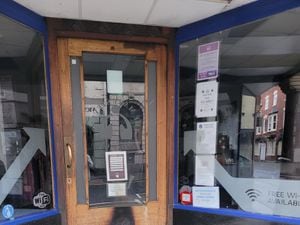Aiming to make best decisions for patients
In April last year family doctors became the local leaders of the NHS. They were handed control of the purse strings and the responsibility to make decisions about the future of NHS services.
[breakout title="Dr Johnny McMahon" align="right"]Dr Johnny McMahon is chairman of Cannock Chase Clinical Commissioning Group, was well as being a practising doctor in Cannock.[/breakout]
The new Clinical Commissioning Groups (CCGs) were formed.
It was the biggest shake up the NHS had seen and part of a drive to put clinicians at the heart of decisions because they are best placed to understand the health needs of their patients.
Although an exciting opportunity for clinicians to take a leading role in the planning and development of local services, it comes when the NHS is facing unprecedented pressure.
People are living longer with more complex conditions and sometimes making lifestyle choices that lead to an increase in conditions such as obesity or cancer and rising healthcare costs.
Coinciding with a year-on-year reduction in the resources allocated to clinical commissioning groups, the challenge for the decision-makers trying to manage patient need is huge.
The majority of money that the NHS has to spend is also currently spent on hospital care rather than keeping people well and preventing them from needing hospital care in the first place.
Doing nothing is not an option – the NHS cannot meet future challenges without change, but the CCG wants to make sure that we take the people of Cannock Chase on that journey with us – working alongside us to make the best decisions for the local population.
The start of that process is the development of an operational plan, which identifies and sets out the direction of travel for the CCG over the next five years. The vision is to shift the focus more on to prevention and have a system that enables patients to be as healthy as they can be with the knowledge and confidence that services are available for intervention, support and guidance if and when they need it.
The CCG wants to better understand and continue to reduce the causes of people being admitted to hospital unexpectedly and do the same for poor health outcomes and poor quality of care. It also wants to improve patient experiences of services and to achieve a far greater equality of health outcomes.
In delivering the vision, the CCG must rebalanced the money it spends so that the services it commissions meet the needs of the local population, are clinically safe and sustainable. This cannot be delivered without changes being made but by involving patients in the design of new services, the CCG can make sure the changes it makes are appropriate and responsive to patient need. As with any period of transition, effective communication is key.
This is why the CCG is determined to improve its links with patients and the public. Over the coming months the CCG wants to have an honest debate with people about the future of services, even though some of the conversations that need to be had will be difficult.
The CCG wants a two-way flow of information and has already introduced ways for people to get engaged.
We are actively trying to increase and strengthen the channels available so that co-production of services becomes the norm, awareness of the right services to use at the right time is high and patients and the public become active partners in the planning, development and delivery of future services.





